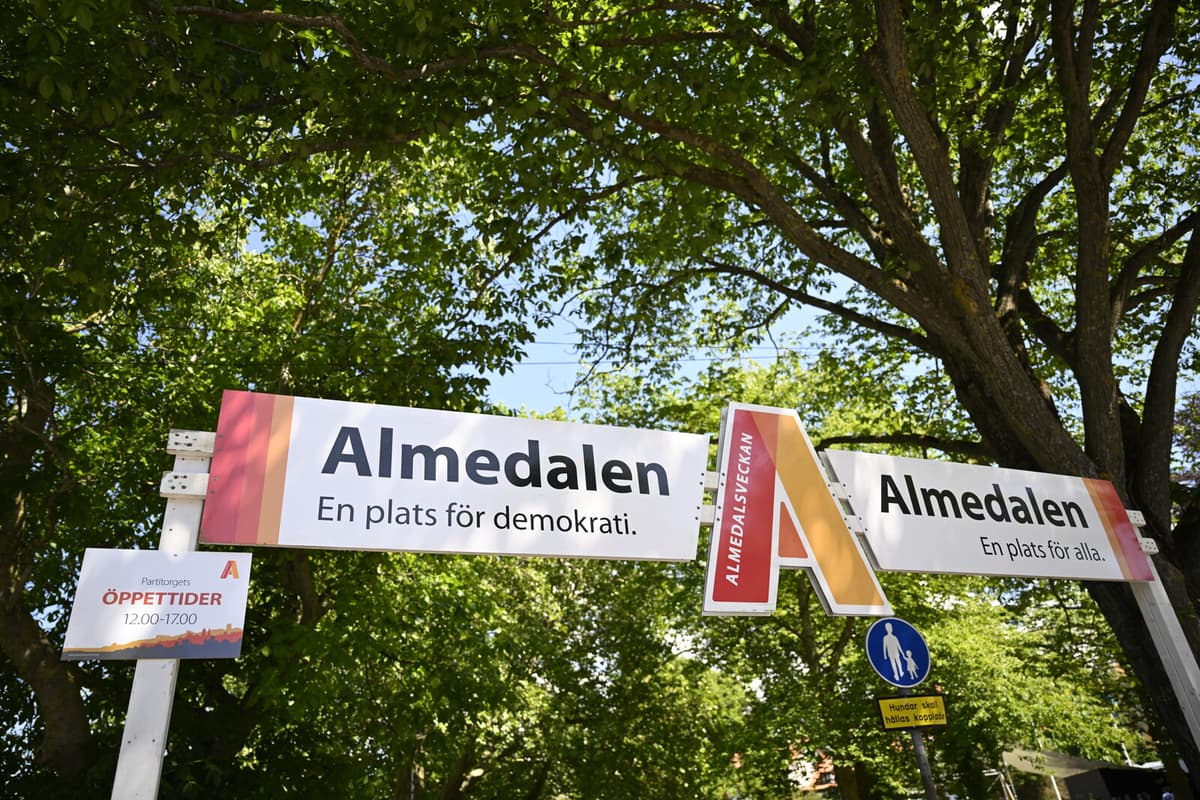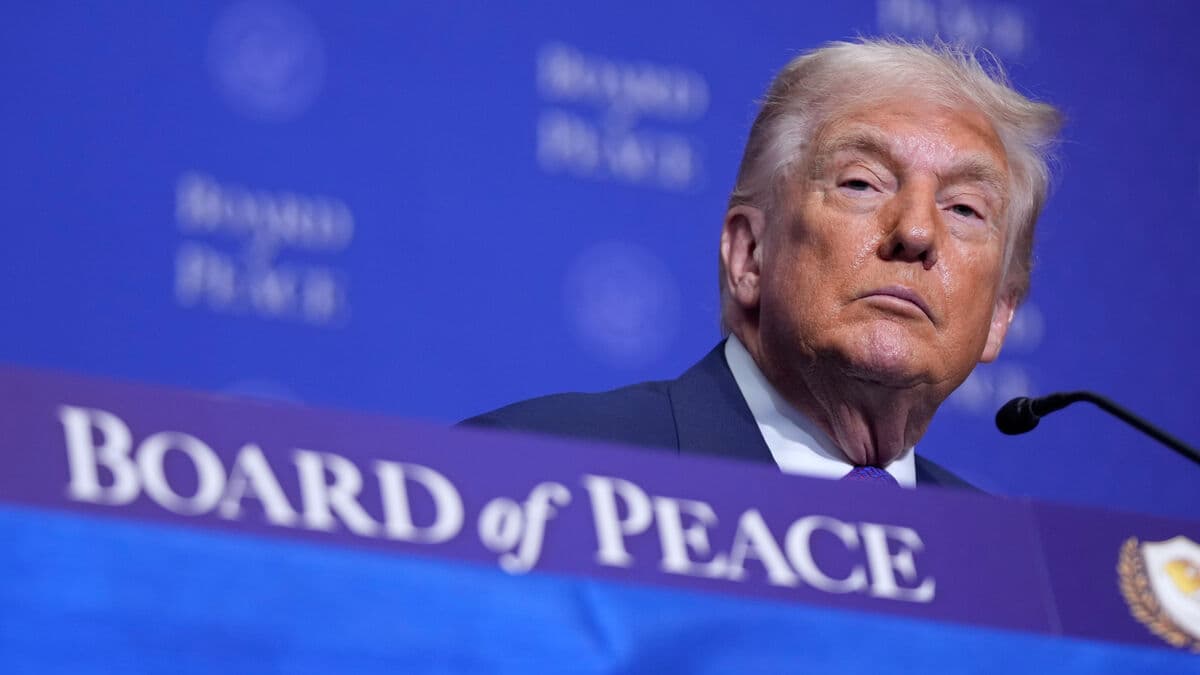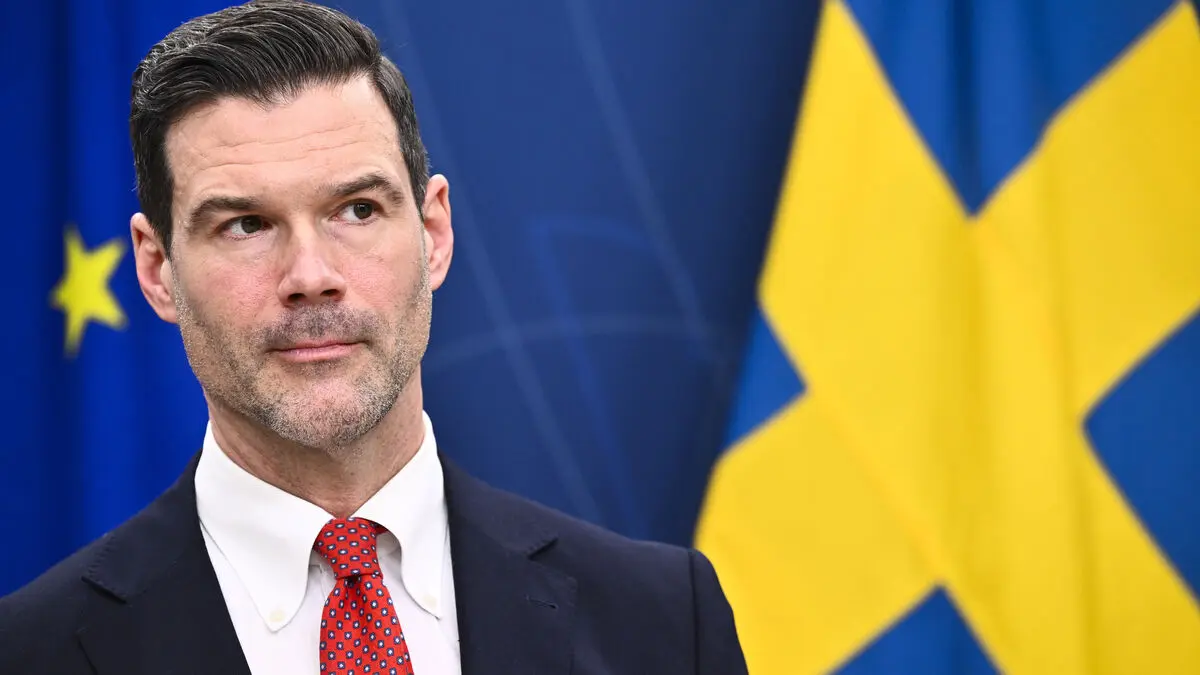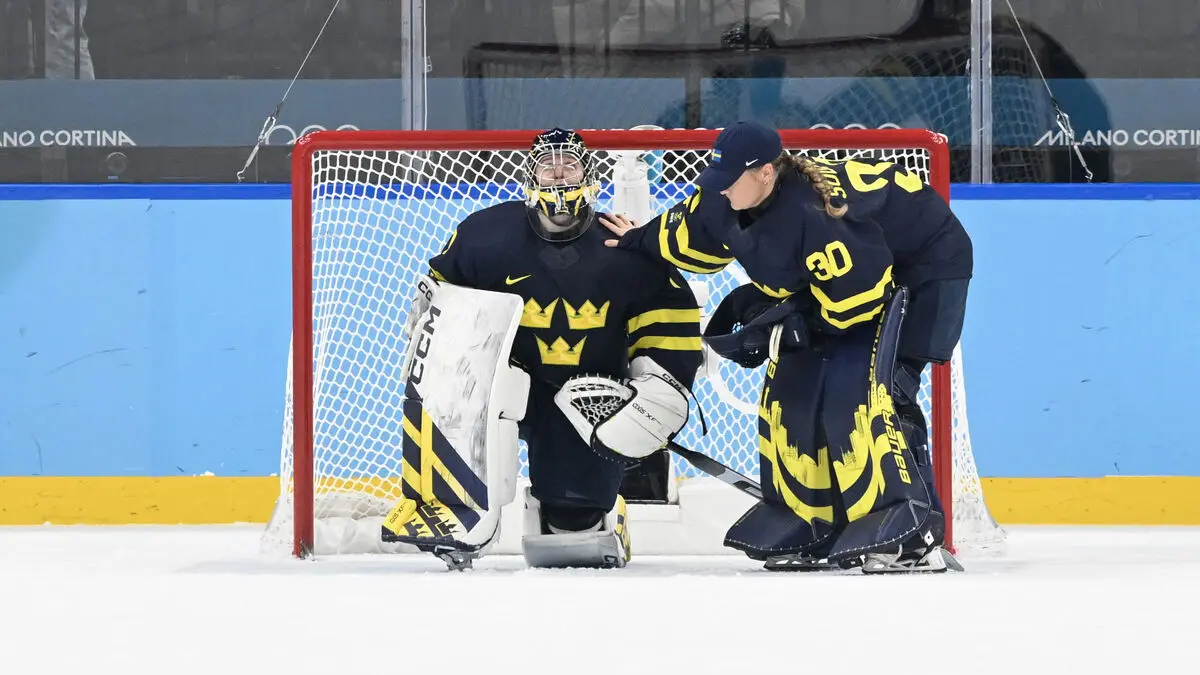There is a sense of preparedness in Almedalen also in the field of culture. The Cultural Council, the trade union Scen & Film and Culture in Almedalen are holding all seminars on how artistic freedom can be guaranteed in times of crisis and war.
Simon Norrthon, chairman of Scen & Film, thinks that there are contradictions in how those in power talk about culture today.
You know how important it is to create, develop and challenge a national identity, what it means to hold a people together in a challenging time. At the same time, you take resources from culture with the motivation that you need to strengthen the defense. It doesn't add up for me. When we strengthen our military defense, we need to strengthen culture as well, he says.
For peace
The issue of preparedness is central for everyone to think about in the current world situation, thinks Kajsa Ravin, director-general of the Cultural Council. Since the full-scale war in Ukraine began, more people have opened their eyes to the importance of culture.
But now we need to take the conversation a little further, she says.
Then the international arena is also important. She emphasizes that Sweden has been driving for 20 years for the only legally binding agreement that exists internationally on artistic freedom and diversity - the Unesco convention that this year turns 20.
A diversity of cultural expressions is the foundation of the peaceful project, which is about people understanding each other.
Simon Norrthon emphasizes that it is not the role of culture to mobilize people's will to fight, but "to mobilize a preparedness for peace and for a future that can be lived in".
It is also of interest to the defense and the army, hopefully, that there is a thought of a different world.
Cultural crisis
Culture should not just be free - but also flourish, emphasizes Kajsa Ravin. Judging by the seminars in Almedalen, this is not the case: theaters and museums describe how they are on their knees after a declining public financing. Swedish cartoonists discuss a cultural climate where cultural workers are described as an elite living on tax money.
At the same time, the Minister of Culture gives a clear story of a Sweden that is falling apart, with integration problems, crime and major security policy challenges, thinks Simon Norrthon.
So what is the Minister of Culture's answer to how her policy area can address those issues? As I see it, you get a lot of cohesion, security policy and crime prevention for the money if you invest in culture.
Advertisement
June 24: The task of cultural life in total defense - are we prepared? Culture in Almedalen discusses how culture can contribute to civil defense, with others such as Rear Admiral Fredrik Peedu and Petra Brylander, artistic director of Malmö City Theater. June 24: Intelligence and the place of AI technology in a thinking world Cognitive scientist Peter Gärdenfors believes that AI is not the greatest threat, but the dumbing down of human thinking that follows from technological development. Seminar by Natur & Kultur. Scen & Film is also holding a seminar on AI, and the importance of setting the rules instead of letting tech companies do it, June 25.
June 24: What difference does culture make in future cities? What happens when culture is given a self-evident place in urban development, asks Malmö City, Kiruna Municipality and Uppsala Municipality.
June 24: The troublesome cultural elite Why is the elite used as a derogatory term in culture, but not in, for example, sports? Discussing the concept are, among others, Sophia Jarl, municipal councilor in opposition in Norrköping Municipality, and Kent Wisti, author, priest and artist. By Swedish cartoonists.
June 25: Equal access to performing arts for children and young people
The regional theaters in Sweden, Assitej Sweden and Teatercentrum on how cutbacks mean that children and young people are left without theater experiences.
June 25: Who wants to understand a mass murderer?
About when theater precedes reality, as happened with the performance "Rov". With Ulf Stenberg, artistic director of Teater Fryshuset. In collaboration with the Center against violent extremism.






